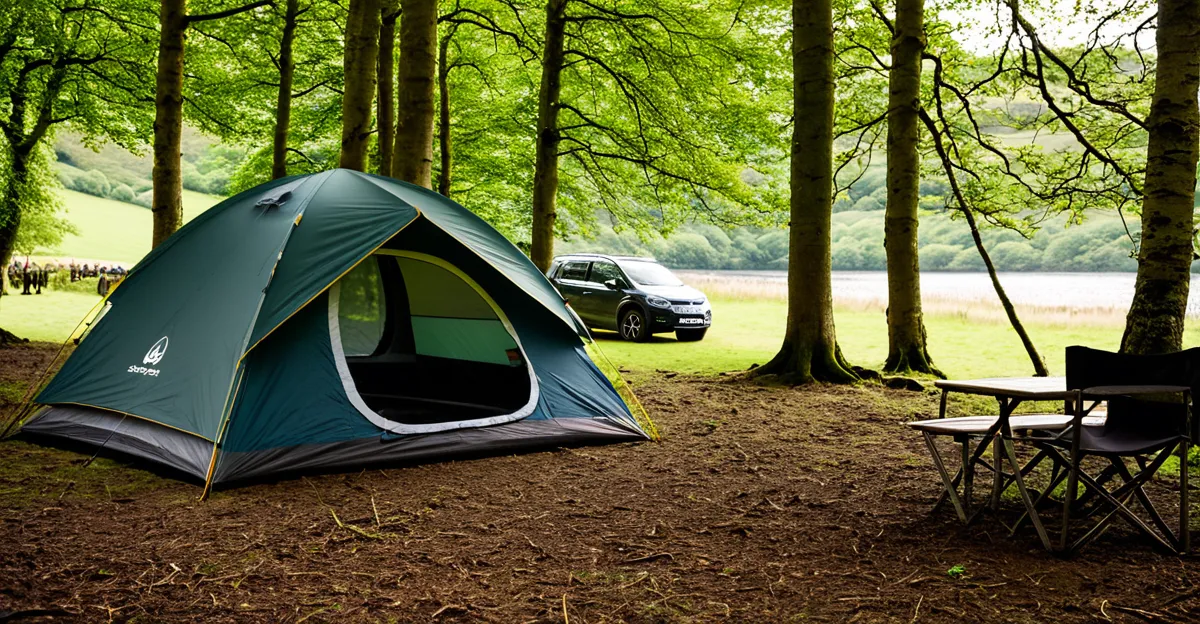Economic Benefits of Camping for UK Local Communities
Exploring how camping supports local economies and rural livelihoods
Camping significantly contributes to the local economy camping areas in the UK by driving spending that directly benefits rural communities UK-wide. When campers visit, they purchase essential goods and services such as food, equipment, fuel, and local experiences. This influx of camper spending creates a ripple effect that bolsters small businesses, including shops, cafes, and outdoor activity providers.
Also to discover : What Are the Best Campsites with Historical Significance in the UK?
Moreover, the economic impact of camping UK extends beyond immediate purchases. Many rural and coastal towns depend on camping tourism to sustain their economies, especially in off-peak seasons. Increased visitor numbers lead to new job opportunities across hospitality and retail sectors, from campsite staff to local shop assistants. This job creation is vital for rural communities UK residents, helping curb urban migration and maintain vibrant local economies.
Camping also provides increased off-season revenue for rural and coastal towns, smoothing out the economic highs and lows that these areas often face. This consistent income supports community projects and infrastructure improvements, ensuring these regions remain attractive destinations for future visitors and residents alike.
This might interest you : What are the best UK camping festivals to attend?
Support for Local Businesses and Services
Supporting local business camping UK plays a crucial role in sustaining the economy and enriching community life. Small enterprises such as shops, cafes, and activity providers often experience significant growth thanks to the influx of visitors to campsites. This growth not only benefits the businesses directly involved but also creates a ripple effect that supports wider community services.
In many regions, the tourism industry UK relies heavily on the vitality of these small-scale enterprises. Campers frequently seek authentic local experiences, which drives demand for traditional services and suppliers. These traditional services include everything from local food producers to repair and maintenance businesses that cater to both residents and visitors. Such sustained demand reinforces the local economy and helps preserve regional cultural identities.
Moreover, the relationship between campsites and local vendors offers several collaboration opportunities. Campsites can promote local products or collaborate with activity providers to create unique experiences for visitors. This synergy benefits both parties: campsites enhance their guest offerings, while local businesses gain exposure and increased clientele. For instance, campsites might partner with local guides for hiking tours or arrange farmers’ markets on site, creating vibrant community hubs that attract more visitors.
By engaging with the local business ecosystem, campsites contribute meaningfully to the resilience and diversity of community services. This interconnectedness strengthens social ties and ensures that economic benefits are more evenly distributed throughout the region.
Camping as a Driver for Cultural Exchange and Community Engagement
Camping in the UK plays a significant role in fostering cultural exchange and strengthening community engagement. When visitors stay at campsites, they often interact with local communities, creating meaningful opportunities to share traditions, food, and customs. This face-to-face interaction encourages mutual understanding and enriches the experiences of both tourists and residents.
Community-led events frequently benefit from the income generated by camping activities. Funding from campsite fees and visitor spending supports local festivals and gatherings, helping preserve unique customs and create lively celebrations that attract even more visitors. Such events reinforce a strong community identity and boost local pride.
These interactions also encourage collaboration between hosts and guests. Visitors bring fresh perspectives, while locals offer authentic experiences, combining to foster a welcoming atmosphere. This dynamic not only benefits cultural awareness but also contributes to the sustainable growth of rural areas reliant on tourism.
Experience shows that when camping supports these exchanges, it goes beyond recreation—becoming a catalyst for bridging cultures and enhancing communities across the UK.
Environmental Awareness and Conservation Initiatives
Camping in the UK offers a unique opportunity to embrace environmental awareness camping UK, encouraging responsible outdoor behaviour that minimizes impact on the natural surroundings. Campers are increasingly urged to practice conservation camping, which involves simple but effective actions like adhering to designated trails, managing waste properly, and respecting wildlife habitats. Such practices help preserve the delicate balance of ecosystems found in popular camping destinations.
Many campsites and organisations actively support sustainable tourism by funding local conservation projects. This funding often goes towards habitat restoration, invasive species control, and maintaining walking paths to prevent erosion. Beyond financial support, volunteer programmes allow campers to contribute directly, fostering a deeper connection with the environment while enhancing conservation efforts.
Furthermore, camping activities frequently include educational components to raise increased awareness of local wildlife and protected areas. These initiatives inform campers about the species they might encounter and the importance of protected zones, promoting a shared responsibility for preserving these natural treasures. By integrating environmental education with enjoyable outdoor experiences, conservation camping helps cultivate a community that values and safeguards the UK’s rich biodiversity.
Development and Improvement of Local Infrastructure
Tourism plays a significant role in infrastructure development camping UK initiatives, often acting as the catalyst for essential upgrades in rural regions. Increased visitor numbers create a demand for better roads, enhanced utilities, and improved facilities, which in turn benefits both locals and tourists alike. These improvements not only ensure safer and more convenient access to camping sites but also elevate the overall quality of life in these communities.
One of the key advantages of rural infrastructure benefits is the enhancement of recreational amenities. For example, development funds are frequently allocated to expanding trails, picnic areas, and public restrooms. These enhancements enrich the visitor experience while simultaneously providing residents with upgraded communal spaces. This dual benefit encourages ongoing maintenance and promotes a sense of pride within the community.
Government agencies often collaborate with private investors to mobilize funding for these projects, recognizing the importance of tourism infrastructure in driving local economies. Such partnerships facilitate long-term infrastructure projects that might otherwise be unfeasible. This strategic investment creates sustainable growth, ensuring infrastructure can handle increasing tourist volumes without compromising local needs.
In summary, the development and improvement of local infrastructure tied to camping and tourism in the UK deliver substantial benefits beyond visitor satisfaction. They support rural communities by upgrading essential services and recreational facilities, fostering economic development, and creating a foundation for continued growth and prosperity.
How Robot Hoovers Improve Daily Cleaning Efficiency
When considering daily cleaning, robot hoovers significantly enhance efficiency by autonomously managing regular floor maintenance. These devices offer the convenience of scheduled cleaning cycles, which means you can set your robot hoover to operate while you focus on other tasks or even when you’re away. This feature ensures a consistently cleaner environment without additional effort.
A key question often asked is: How do robot hoovers navigate and clean various floor types efficiently? The answer lies in their advanced sensors and mapping technology. Robot hoovers are equipped with sensors that detect obstacles, edges, and dirt levels, allowing them to optimize their cleaning routes. As a result, they effectively cover different areas, adjusting suction power for surfaces like carpets or hardwood floors.
Moreover, robot hoovers use algorithms to avoid repeated coverage of the same space, improving cleaning speed and conserving battery life. This technology also supports their ability to return to charging docks autonomously, ready for the next cleaning cycle.
In practical terms, this means less time spent manually vacuuming and more consistent cleanliness throughout your home. By setting a routine, robot hoovers maintain your floors actively, reducing dirt accumulation and allergens over time. This solution is especially beneficial for busy individuals seeking to balance cleanliness with a hectic lifestyle.
In summary, robot hoovers enhance daily cleaning efficiency by combining autonomous operation, intelligent navigation, and adaptable cleaning modes, making them an invaluable tool for maintaining a tidy home.











